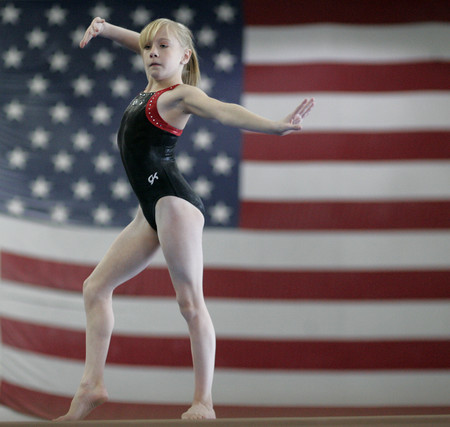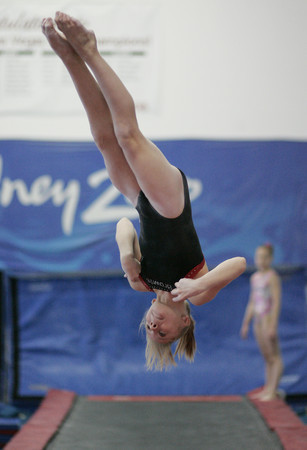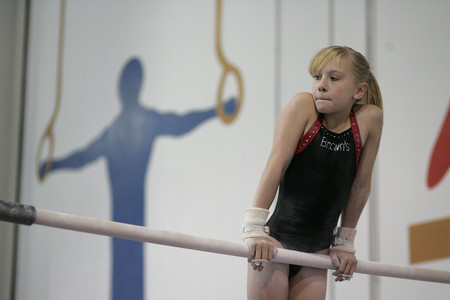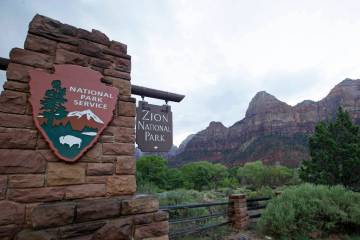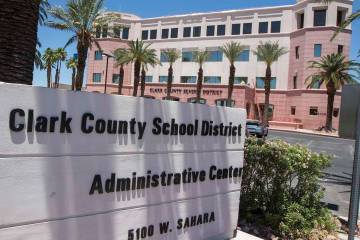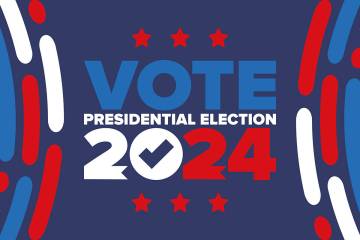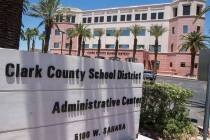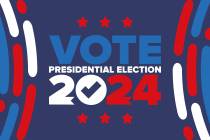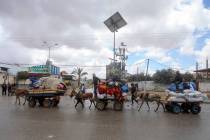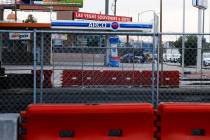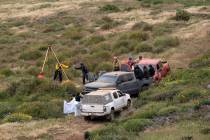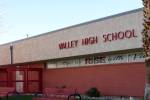Online education makes house calls to Clark County students
Eleven-year-old Alicia Ross practices gymnastics about 25 hours a week, but she doesn't need to do back flips to get to school on time.
For her, the classroom is as close as her home computer. Ross, a sixth-grader, is enrolled at Nevada Connections Academy, an online charter school.
She and numerous other students are embracing what one high school principal described as "education without walls." It's an option that allows students to live anywhere in the world while staying enrolled in a Las Vegas school. Children and teens who participate in athletics, work in the entertainment industry or have other pursuits that require daytime commitments can fulfill their educational requirements during nontraditional school hours.
It also opens up opportunities to students who, for whatever reason, struggle in a regular school environment.
"Imagine all the possibilities," said Ron Montoya, principal of Valley High School in the Clark County School District.
Armantin Varona, 18, the 2009 valedictorian for Virtual High School in Las Vegas, gave his graduation speech from Japan, where he was traveling. It's the kind of student adventure and success that online school officials like to trumpet.
Virtual, like the Connections Academy, caters to students with busy lifestyles. Chris Iorio, a recent graduate and guitarist for the rock group Adelitas Way, has just signed a recording contract with a major label, school officials said.
Online education is also a boon to students who are painfully shy or squeamish about dead animals. It's also an option for students who are short on credits but want to graduate on time.
Essingtion Wade, the principal of Virtual, an online district school, said his enrollment includes some introverted students who would have a hard time "surviving on a campus with 3,000 students."
Virtual High School, at McLeod Drive and Flamingo Road, has 143 full-time students. It also serves 2,300 part-time students who are taking classes online to supplement their regular class schedules at brick-and-mortar high schools.
Wade said his students can come to the campus as often as they wish, but they're rarely required to do so.
While Virtual has a science lab students can use, Wade said many experiments can be performed in the virtual world where "chemicals" fizz up on an animated computer screen just as they would in the real world.
There are even mock lab explosions if a student makes a mistake.
Other online schools also adapt science courses to the virtual classroom. Jerry Krummel, principal of Nevada Connections Academy, said in biology, "We won't send you a frog, but we'll send you the software for a frog."
Wade said computer programs for dissecting frogs are so lifelike, they mimic the sound skin makes as it peels away from the flesh.
Virtual is so committed to its format that the school is down to its last five reams of paper. Once the 2,500 sheets of paper are gone, the school will operate as a paperless campus, Wade said.
Online educators say virtual school is just as good as, if not superior to, traditional education. Its one big advantage is that online education can be tailored to meet the specific needs of a student, they said. The visual learner can learn through graphics and animation. The hands-on learner can learn through activities.
Wade said his online students also know their teachers better than students in traditional classrooms. "They can communicate 24 hours a day" through e-mail, online chat rooms and texting.
Montoya said that at Valley, near Sahara and Eastern avenues, proof is strong that students are learning online.
In the two years Valley has offered online credit retrieval classes through Advanced Academics, a private provider based in Oklahoma City, the school has made adequate yearly progress as required by the federal No Child Left Behind Act.
Last year, Valley climbed to exemplary status.
The program is so successful that the district is spending $617,500 in federal stimulus funds to expand Advanced Academics to eight high schools this year.
Montoya likes the program because it gives student hope that they can graduate on time with their peers. Students can make up a class they have failed by taking it online.
The online students are assisted by a Valley teacher. They can take online classes on a school computer during a free period of their school day.
"It's easier because you can work at your own pace," said Valley senior David Jackson, 17. "I was able to make up two semesters of algebra in one semester."
Wade said Virtual students can work at an accelerated pace when they are making up a class online, because they can focus on what they missed or did not understand the first time around.
"It's filling in the gaps," Wade said. "It's not like the student is taking the class for the first time."
Virtual also offers credit retrieval classes to students at Foothill, Arbor View and Mojave high schools.
One worry about online education is the potential for cheating, but Wade said Virtual High School has multiple ways to catch cheaters. For example, it sometimes gives oral exams. Virtual also screens students' papers to make sure the content is not "something downloaded from Wikipedia."
At Connections Academy, the online charter school, parents and students must sign a code of ethics. At least one adult must be the with the student during the day.
Steve Ross, Alicia's father, said he can stay home with his gymnast daughter because he works a swing shift as an MGM Grand bellman.
Ross stresses that he's not a teacher. His daughter is instructed by a teacher over the Internet.
His daughter's high scores on a state standardized test assure Ross that his daughter is getting a good education.
But Anthony Ruggiero, president of the Nevada Board of Education, is skeptical whether online education is the same as home schooling, with parents doing most of the work.
He voted against granting charters to Connections Academy and Nevada Virtual Academy because he thought K-4 students were too young for online education. He is also leery of charter schools that are managed by for-profit companies. Charter schools, such as Connections and Virtual Academy, operate as public schools and receive public funding.
"All that money is leaving our state," Ruggiero said.
Because Connections Academy is a public school, families get a free computer and a subsidy of $19 a month for Internet access. The computers come equipped with a chip that prevents students from straying into unsuitable Internet sites, said Krummel, the principal of Connections Academy.
Nevada Connections is part of Connections Academy, a national chain with headquarters in Baltimore. Krummel said the profit motive is nothing new in education; textbook publishers also are private, for-profit companies.
He said Nevada Connections employs about 46 teachers in the state. They teach about 1,300 students in grades K-12, including 56 kindergartners.
Krummel disputed that online education is home schooling. Online students are "just telecommuting to work," he said.
Families also get a lot of support. There are real-time classes, even for kindergartners. Students meet their peers through field trips and a "Friday Lunch Bunch" that draws hundreds of online students to a city park for play and socialization.
Online schools are also a natural setting for kids who are naturally intuitive with new technology. At one time, families would call on a neighborhood 13-year-old to help install a new computer, Krummel said. "We're getting to the point now where that kid is 8 years old."
Contact reporter James Haug at jhaug @reviewjournal.com or 702-374-7917.



